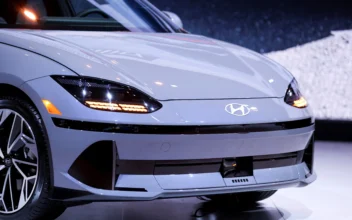South Korean automaker Hyundai has issued a recall for over 145,000 hybrid electric vehicles in the United States due to a potential defect in their battery charging systems. The recall, announced by the U.S. National Highway Traffic Safety Administration (NHTSA), affects five popular models, including the IONIQ and Genesis series.
Here's ads banner inside a post
The Issue at Hand
The vehicles being recalled are facing issues related to their Integrated Charging Control Unit (ICCU), a critical component that manages battery charging and powers vehicle accessories. According to the NHTSA, under specific conditions, the ICCU’s MOSFET transistor may fail, potentially leading to a blown fuse. This defect can prevent the car battery from charging, rendering the vehicle inoperable.
The ICCU is designed to initiate a fail-safe driving mode when the defect occurs. In this mode, the vehicle gradually reduces engine power as the battery depletes. However, safety-critical systems like airbags, braking, and powered steering remain operational, ensuring the vehicle can still be controlled.
Models Affected by the Recall
The recall affects the following hybrid electric vehicles across various model years:
Here's ads banner inside a post
- 2022-2024 IONIQ 5
- 2023-2025 IONIQ 6
- 2023-2025 Genesis GV60
- 2023-2025 Genesis GV70
- 2023-2024 Genesis G80
These models are a mix of SUVs and hatchbacks, reflecting the growing demand for hybrid and electric vehicles in the U.S. market.
A Recurring Problem
This isn’t the first time Hyundai has faced issues with its ICCU. A similar recall was issued earlier this year for the same models under Hyundai Recall 257 and Genesis Recall 021G. That recall addressed concerns over failing FET transistors within the ICCU.
In this latest recall, the defect can be remedied with a simple software update. If necessary, Hyundai will replace the ICCU unit and its fuse at no cost to owners.
Here's ads banner inside a post
What Hyundai Owners Should Do
Hyundai plans to notify affected owners through certified mail starting January 17, 2025. Vehicle owners are encouraged to bring their cars to Hyundai dealers or Genesis retailers for inspection and repairs.
For quick verification, owners can visit the NHTSA recall website and enter their Vehicle Identification Number (VIN). Alternatively, Hyundai customer service is available at 1-855-371-9460, and Genesis owners can reach customer service at 1-844-340-9741 for further assistance.
A Year of Recalls for Hyundai
This latest recall is one of several issued by Hyundai in 2024, highlighting the challenges automakers face as they transition to electric and hybrid vehicles. Just last week, Hyundai recalled nearly 35,000 Santa Fe and Santa Fe Hybrid vehicles due to a sunshade defect that caused the shade to close unexpectedly.
In July, Hyundai faced multiple recalls:
- 12,000 vehicles were recalled due to a transmission control software error that could cause cars to roll away in parking mode.
- 54,000 vehicles were affected by a potential fuel pump failure, which could lead to a loss of drive power.
These recalls underscore the importance of stringent quality control as manufacturers innovate and introduce more complex technologies in their vehicles.
The Growing Demand for Hybrid Vehicles
Despite these setbacks, Hyundai continues to make strides in the hybrid and electric vehicle market. Its IONIQ and Genesis models are celebrated for their sleek designs, advanced features, and impressive fuel efficiency. The popularity of these vehicles reflects a broader trend in the automotive industry, with more consumers opting for environmentally friendly and energy-efficient options.
The recall, while a challenge, demonstrates Hyundai’s commitment to addressing issues proactively and maintaining customer trust. By offering free repairs and clear communication, the company aims to minimize inconvenience for affected owners.
Lessons for the Automotive Industry
The challenges Hyundai faces are not unique. As automakers race to meet consumer demand for hybrid and electric vehicles, they are grappling with complex engineering and cutting-edge technology. Quality control, software reliability, and component durability are critical areas that require ongoing investment and scrutiny.
The ICCU issue also highlights the importance of software in modern vehicles. With cars increasingly reliant on digital systems, even minor glitches can have significant consequences, impacting everything from performance to safety.
Looking Ahead
As Hyundai moves forward, it will need to reassure customers that it can deliver reliable, high-quality vehicles despite these setbacks. The company’s swift response to this recall, coupled with its growing lineup of innovative hybrid and electric vehicles, positions it well to navigate these challenges.
For affected owners, the recall serves as a reminder of the importance of staying informed about vehicle safety notices. With the convenience of free repairs and updates, addressing the defect should be a straightforward process.
Ultimately, this incident is part of a larger story about the evolution of the automotive industry. As manufacturers push the boundaries of technology and design, occasional missteps are inevitable. What matters most is how these challenges are addressed—and Hyundai’s actions in this case suggest a company determined to learn, adapt, and improve.

